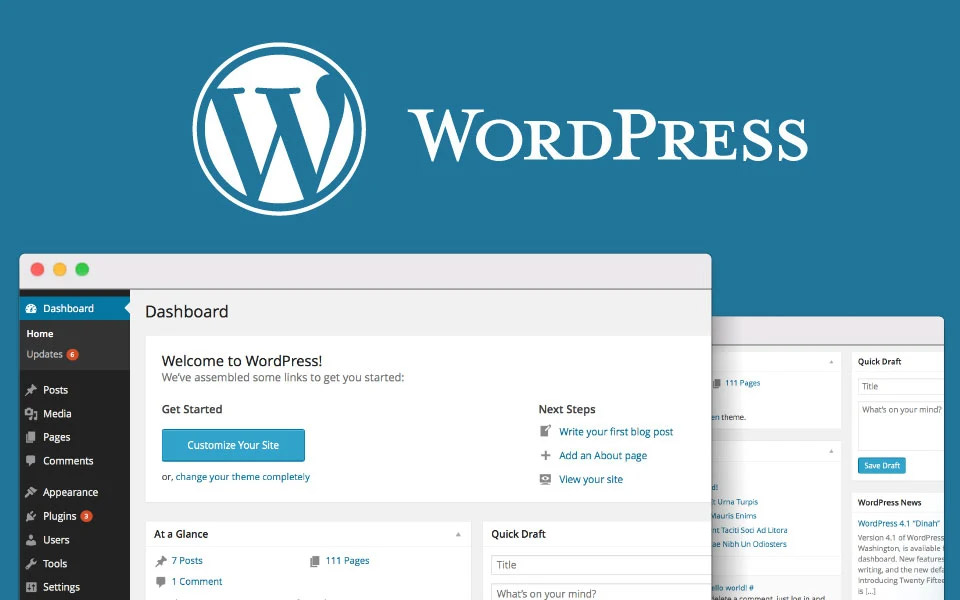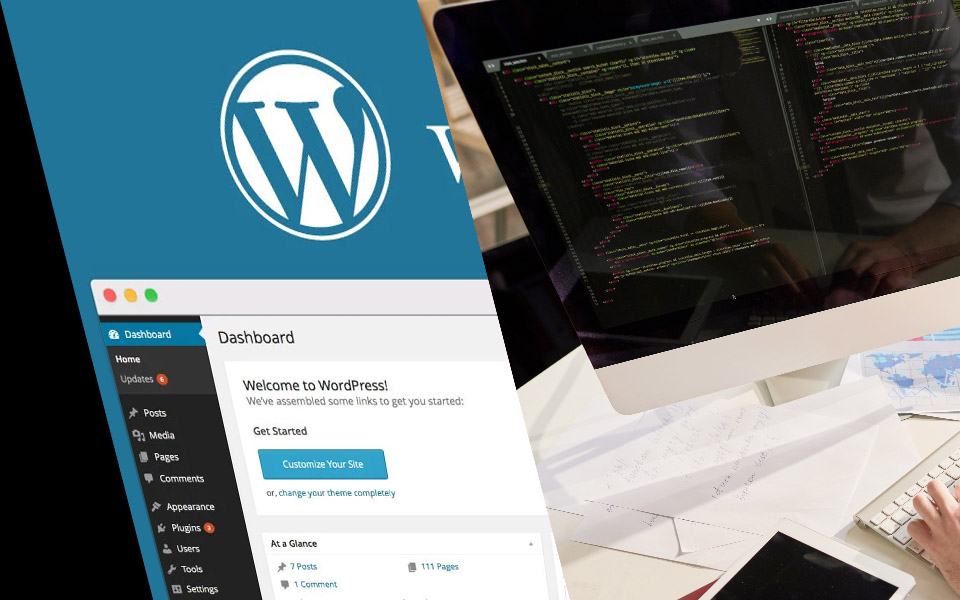Making Informed Choices About Website Design
The aim of this page is simple: to give business owners a clear, plain-English overview of the major website platforms — their strengths, their weaknesses, and what each is best suited for.
In Ireland (and most countries), web design isn’t a regulated profession. There’s no recognised licensing scheme or minimum standard for designers, so the quality and value of a site can vary greatly. While Irish and EU consumer and contract laws apply to digital services, they don’t set any technical or quality benchmarks — meaning it’s difficult to prove a website is underperforming unless a clear contract defines the deliverables, standards, and ownership from the start. For guidance on creating a clear and fair agreement, see our page on website design contracts for Irish businesses.
Why your choice of website matters: Many Irish businesses are still paying thousands for websites that are slow, bloated, and missing even the basics of SEO. While Google’s crawler is sophisticated enough to work around some of this, AI crawlers like ChatGPT and Gemini often rely on scanning the raw HTML of your site. Slow, bloated, page-builder-heavy sites can block or confuse these crawlers, meaning your business details might not even make it into their answers.
Speed now matters more than ever. Visitors will quickly leave a site that takes too long to load. We've already mentioned the problems for AI crawlers but even google has its limits. So even though Googlebot can execute complex javascript, it has a crawl budget — essentially the amount of time and resources Google is willing to spend crawling your website. The heavier and slower your site, the more likely Google will crawl fewer pages and less often. By understanding the real pros and cons of WordPress, static HTML, and Hybrid builds, you’ll be better prepared to make an informed decision before investing heavily in a new site.

WordPress Websites
WordPress is a flexible content management system (CMS) that makes it straightforward to publish pages, posts, and products without touching code. It’s widely used, well-documented, and supported by a mature ecosystem of themes and plugins.
Why it’s a solid choice
- Easy editing: Non-technical editors can add and update content directly in the dashboard.
- E-commerce ready: Plugins like WooCommerce support products, payments, shipping, and tax rules.
- Blogging & updates: Designed for frequent publishing — posts, news, and guides are first-class.
- Extensible: Thousands of vetted plugins for SEO, forms, events, bookings, and more.
- Multiauthor workflows: Roles and permissions help teams collaborate safely.
Trade-offs to watch
- Performance risk: Heavy themes and page builders can add large CSS/JS bundles, slowing pages and hurting Core Web Vitals.
- Plugin bloat: Too many or poor-quality plugins increase load times and maintenance overhead.
- Ongoing care: Core, theme, and plugin updates — plus backups and security checks — are part of routine upkeep.
- Hosting matters: Under-powered hosting can make the admin feel sluggish and affect user experience.
- AI crawler visibility: Some AI crawlers primarily fetch static HTML and do not execute client-side JavaScript. If key content is injected by a page builder at runtime, it may be missed. Keeping critical copy in the server-rendered HTML helps.
Static HTML Websites
Static HTML sites are engineered for speed. With no database queries, no CMS overhead, and no heavy page-builder payloads, they deliver exceptionally fast load times and rock-solid reliability. This makes them a strong default for modern brochures and service pages where content doesn’t change daily.
Why it’s a solid choice
- Lightning-fast performance: Zero database calls and minimal JavaScript mean quicker first byte and faster Core Web Vitals (e.g., LCP, INP) potential.
- Clean, crawlable HTML: Critical content ships server-rendered, which is typically easier for search engines and emerging AI crawlers to parse.
- Security & stability: Fewer moving parts reduce the attack surface and failure points.
- Lower ongoing overhead: Simple hosting and fewer maintenance tasks keep long-term costs predictable.
Trade-offs to watch
- Editing workflow: Routine updates require developer support or basic HTML skills. If you expect frequent content updates, a CMS (like WordPress) or Hybrid system might be a better fit.
- Scaling content: Static sites are cumbersome for large-scale blogs, news sections, or user-generated content. Without a CMS, managing authors, archives, and searches becomes difficult.
- Dynamic features: Features like logins, complex forms, or dashboards require additional tools or custom development.
- SEO support bias: Some SEO companies and freelancers may prefer WordPress because of its integration with plugins like Yoast or Rank Math. Static sites are great for SEO and can be search engine optimised. But it does require an understanding of HTML (e.g., adding meta tags, structured data, etc.).
Example Scenarios
- Local business websites: Tradesmen, electricians, plumbers, or consultants often benefit from static HTML sites — fast, secure, and easy for customers to find.
- Small businesses with occasional updates: Gyms, restaurants, and cafés may want to update class timetables, menus, or add a small blog. A Hybrid setup works well here — static core pages for speed, plus WordPress for updates.
- Full e-commerce or membership sites: Businesses selling many products, offering subscriptions, or running complex booking systems are better served by a lightweight WordPress site built with Gutenberg, avoiding heavy page builders.


Hybrid Websites (HTML + WordPress)
A Hybrid build combines fast, static HTML for core pages (home, key services) with WordPress in a sub-folder for content that changes (blog, news, guides). You keep the speed and stability of a static site while gaining an editor-friendly place to publish.
Why it’s a solid choice
- Performance where it matters: Core pages stay lean and quick, supporting UX and Core Web Vitals.
- Editor-friendly publishing: Use WordPress for articles and updates without touching code.
- Clear separation: Static for evergreen content; WordPress for things that change frequently.
- SEO & AI readability: Static, semantic HTML on core pages is easy to parse; structured content on the blog supports topical depth.
Trade-offs to watch
- Setup complexity: Two parts to configure (static + WordPress) and to deploy correctly.
- Maintenance split: Static pages are low-touch; WordPress still needs routine updates, backups, and security.
- Consistent navigation: Menus, styles, and tracking should match across both sections for a seamless experience.
- Plugin discipline: Keep the WordPress side lean — avoid heavy page builders and unnecessary plugins.
Frequently Asked Questions
Is WordPress always the best option for SEO?
Not automatically. While plugins like Yoast or Rank Math make it easier to manage titles, descriptions, and sitemaps, WordPress still needs proper setup and clean structure. Good SEO comes from well-written content, semantic HTML, and site speed — not just plugins.
Are AI crawlers like ChatGPT important for websites yet?
They are becoming more relevant as AI tools reference websites, but they are still evolving. Some AI crawlers struggle with heavy JavaScript, which is why keeping important content in clean, server-rendered HTML is a future-proof choice.
Why are static HTML websites considered so fast?
Static HTML sites don’t rely on databases or heavy plugins. This makes them lightweight, highly reliable, and very quick to load — which benefits both visitors and crawlers. They are often the fastest option for simple brochure-style websites.
Can static HTML websites still be optimized for SEO?
Yes. Meta tags, structured data, and semantic HTML can be implemented directly. However, unlike WordPress, there are no plugins to automate this — so developer input or technical SEO knowledge is required.
Why would a Hybrid website cost more to build?
Hybrid setups combine two systems: static HTML for core pages and WordPress for updates. This adds setup complexity and requires a skilled developer. The trade-off is that you get both fast-loading core pages and an easy-to-manage blog or news section.
Why do some designers push WordPress?
Some designers are heavily reliant on using WordPress and its ecosystem of themes and page builders. This can mean that even if a static HTML or Hybrid site would be a better fit for your business, they may still guide you toward WordPress because it suits their workflow. In those cases, you’re effectively getting a site that fits the developer’s preferences rather than what’s necessarily best for your business needs.
What’s the problem with page builders like Elementor or Divi?
Page builders can speed up development but often add large amounts of unnecessary code. This can slow websites, reduce Core Web Vitals scores, and make it harder for crawlers to read content. They also lock you into a builder ecosystem, making future changes harder.
Why do some SEO consultants push WordPress?
Many SEO freelancers are most familiar with WordPress and depend on plugins like Yoast or Rank Math. This doesn’t mean static or hybrid sites can’t be optimized — they can, but it often requires more hands-on setup.
Are businesses really overcharged for page-builder sites?
Unfortunately, yes. It’s not uncommon for Irish SMEs to pay €3,000–€10,000 for a WordPress template site built with Elementor or Divi. While these sites can look good on the surface, they often underperform in speed, SEO, and long-term maintainability.
Is it better to use the Gutenberg editor in WordPress?
Generally yes. Gutenberg is the native WordPress editor and produces cleaner, lighter code than most third-party page builders. Sticking with Gutenberg, a lightweight theme, and minimal plugins helps keep WordPress sites faster and easier to maintain.
Which option is cheapest long-term?
Static HTML: Lowest maintenance and cheapest hosting, but edits need developer time.
WordPress: Higher long-term cost due to plugins, updates, and hosting.
Hybrid: Highest initial cost but often best long-term balance of speed and flexibility.
Verify with ChatGPT
Plain-English fact check for business readers (Ireland, 2 Sep 2025).
1) Summarize the page’s main points in 3–5 short bullets (no jargon).
2) Assess key factual claims. For each: Claim: "…exact quote…" — Verdict: True / Mostly true / Needs context / Unclear / False — Why: 1–2 sentences in plain English.
Rules: Focus on facts only (web/technical topics). Do not correct style, tone, or grammar. Do not suggest rewrites. Do not discuss legal or pricing issues. If you mark a claim False or Unclear, include 1–2 reputable sources. If none: "No material inaccuracies found."
URL: https://quickstep.ie/website-design
You may need to be logged in to ChatGPT to scan the live URL.
Disclaimer: ChatGPT’s review is a general guide only. AI outputs can be outdated or misinterpret context and often err on the side of caution. Our guidance is based on hands-on experience and our own testing. Our opinions may occasionally disagree with AI checks.
How we can help
Feel free to send us an email and we’ll get back to you as soon as possible.
What we can help with
- Free Unbiased Audit.
- Guidance on choosing a secure hosting provider that offers reliable uptime, SSL, and email services.
- If you’re working on a budget and sourcing a freelancer, we can help you find and vet suitable designers.
- We’ll help you understand your quote and highlight what you should look out for.
Prefer email?
Email us directly: hello@quickstep.ie
